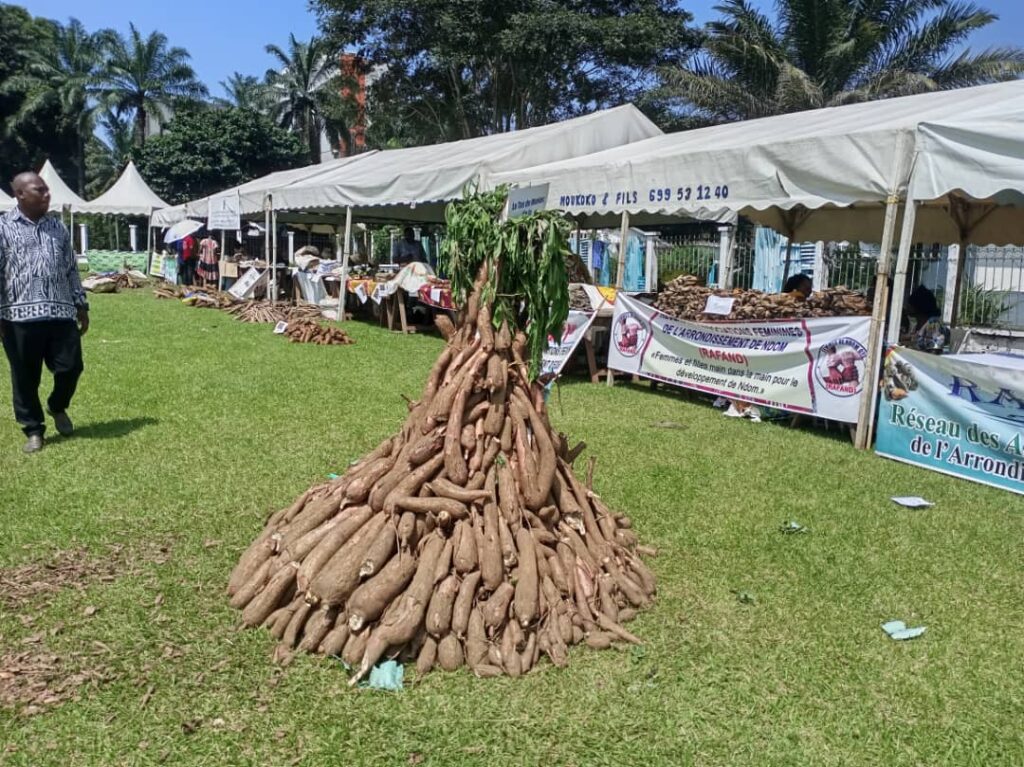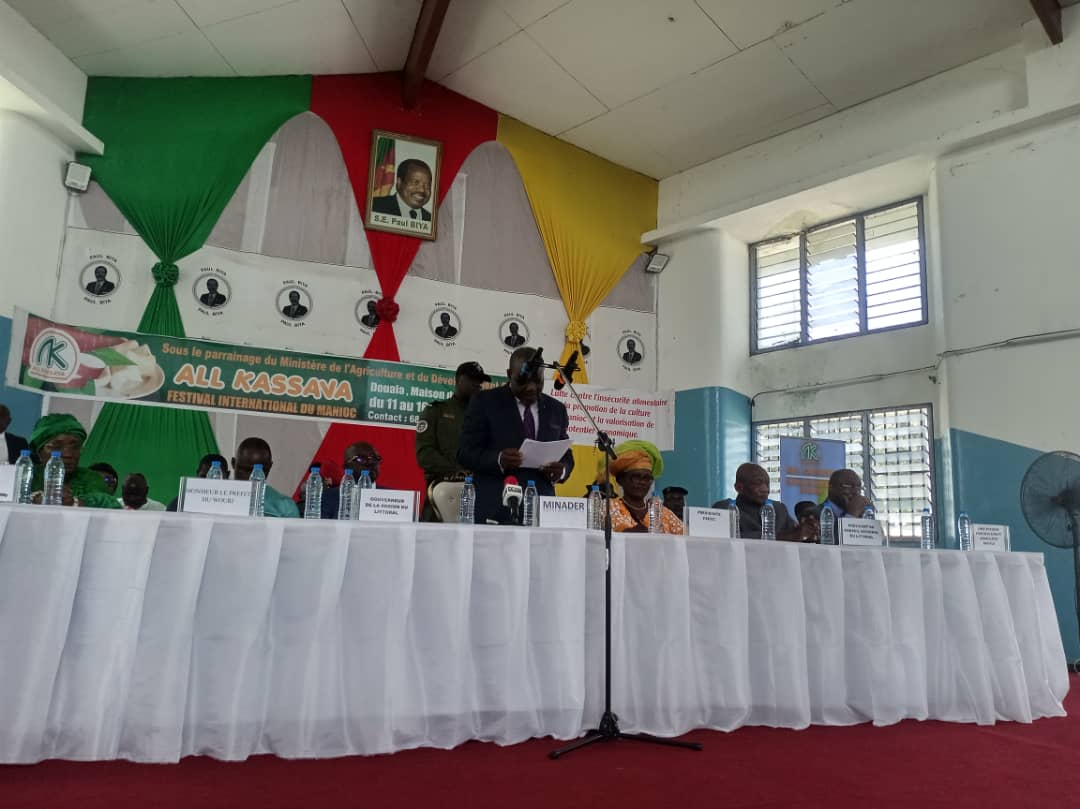It was a very happy Gabriel Mbairobe Minister of Agriculture and Rural development that cut the opening ribbon for the two days first International cassava festival named “All Kassava”, which took place this Monday 11th November at the party house in Bonanjo Douala Littoral Region. “Food sufficiency is an important preoccupation for the Head of State” the minister said in his opening speech. He quoted President Paul Biya as he said “as much as there will be a Cameroonian who has not eaten enough, our mission will be incomplete”. He applauded the initiative of Mme Yvette Doume Banlog, president of the ONG, Women Action and Development in Cameroon, by its French acronym FADEC, to have created a festival for Cassava which is a very wonderful food stuff. Not only is it important to fight food insufficiency, it is also very important for the economy as it is easy for planting. In six months, cassava can be ready for harvesting, transforming and consumption. A wonderful food crop that brings to the table more than just the food aspect.
Growing in all the ten regions of Cameroon with a total of 6 tons produced per year, Cassava is transformed in many different type of food stuffs depending on the region, dried and grind it gives white fufu that is consumed with soup or vegetable in almost all the parts of the country. Wet it is grind to give water fufu that is eaten with eru or other vegetable and soup, or it is transformed to bobolo or miondo, mixed with little oil, it gives mitoumba. Ingredients added on it we have equang cassava. Going modern, cassava gives cake and bread. Unbelievably, this CA PRESS reporter on the spot, had a taste of very nice yogurt produced from cassava. A wonderful partner for the fight against food insufficiency in Cameroon. Minister Mbairobe did not forget to announce that factories of cassava transformation will soon be built in Puma and Dibombari, all in the littoral Region.

All this food stuffs that are derivatives of cassava are a source of riches to the actors of the various sectors as it provides employment in a large scale from the planting level, harvesting and the production at the various stages. Not forgetting that the commercialization of the product is a clean and clear source of income to the various actors of the sector. Cassava plays an important role in the economy of Cameroon. Considering that cassava flour can replace the wheat flour for the production of bread and cake, the economy will not suffer from the negative consequences of the war between Russia and Ukrain, the two countries being the main producers of wheat for flour. Cameroon produces 1 million to 1.5 million tons of cassava flour a year. The minister underlined that presently the country is producing 5 to 7 tons of cassava a year but with the new technics of production that are put in place, the production is expected to be at 15 tons in 2025 and 20 tons in 2030.
Though it is pleasing to see what quantity of cassava is produce and that kind of transformation is derived from the tuber, it does not come without it share of difficulties. “The first difficulty women always have is the possibility to acquire land for their plantation” FADEC president Madam Banlog said to the press. She also presided that women will have to be schooled on which specie of cassava to plant in which soil. Meaning that, some species of cassava are not adapted to some kind of soil which causes difficulties for the growth of the plant. She promises that she and her ONG are fighting hard that women should have machines to facilitate transformation and grow them away for the traditional method which does not increase the quantity and quality of the product at the end. The ONG president thought it important to underline that the growing and transformation of cassava is a rich cultural heritage that must be transfer to future generations just like it came from our ancestor.
